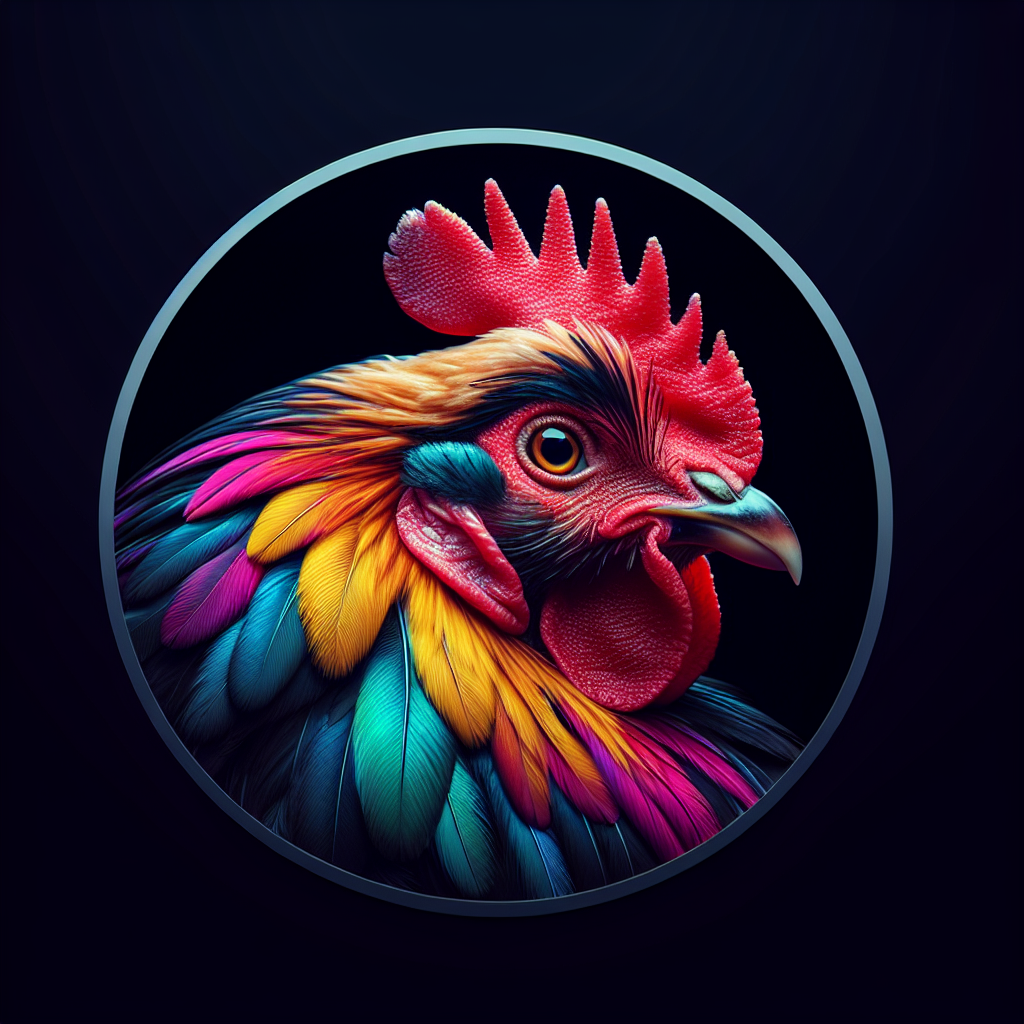In the world of animal husbandry, it can be a daunting task to provide individual attention and care to every member of a larger flock. However, with a few key strategies and a commitment to their well-being, it is possible to ensure that each and every animal receives the attention and care they deserve. By implementing a system of regular health checks, maintaining optimal living conditions, and fostering a strong bond between caregiver and animals, you can create an environment where individual attention becomes a priority, even in larger flocks.
Understanding the Challenges
Importance of individual attention and care
When managing larger flocks, it becomes crucial to ensure individual attention and care for each bird. Providing individual attention promotes the overall well-being of the flock and helps prevent any potential issues. This includes monitoring the health and behavior of each bird, ensuring they have access to necessary resources like food and water, and creating a safe and enriching environment for them to thrive in.
Challenges in providing individual attention in larger flocks
Managing a larger flock comes with unique challenges when it comes to providing individual attention. The sheer number of birds can make it difficult to closely monitor each one. Additionally, the increased size of a flock can lead to overcrowding, which can negatively impact the health, behavior, and overall welfare of the birds. It can be challenging to effectively communicate and interact with every bird in the flock, potentially leading to issues going unnoticed or unaddressed.
Effective Communication
The role of communication in flock management
Communication plays a pivotal role in successfully managing a flock. It ensures that caretakers are aware of the needs and concerns of each bird and allows for timely intervention when necessary. Additionally, effective communication promotes coordination and cooperation among the flock management personnel, leading to better overall management practices.
Establishing clear channels for feedback
To ensure individual attention and care in larger flocks, it is essential to establish clear channels of communication for feedback. Caretakers should have a means to easily report any observations or concerns regarding the birds. This could be in the form of regular meetings, suggestion boxes, or digital platforms where information can be shared. By encouraging feedback, caretakers can actively contribute to the well-being of the flock and address any issues promptly.
Utilizing technology for communication
In the digital age, technology can play a significant role in facilitating communication. Flock management software and apps can be employed to streamline communication processes, allowing caretakers to easily communicate and exchange information regarding individual birds. Technology can also enable real-time tracking of bird behavior and health, enhancing the ability to provide individual attention.
Implementing Proper Stocking Density
Understanding the optimal stocking density
Maintaining the appropriate stocking density is vital for individual attention and care in larger flocks. It is crucial to understand the optimal stocking density for the specific type of bird being managed. Overcrowding can lead to increased stress, aggression, and the spread of diseases. On the other hand, too much space can result in birds feeling isolated and experiencing behavioral issues. Striking the right balance is essential for the well-being of the flock.
Preventing overcrowding
Preventing overcrowding is key to ensuring individual attention and care. By closely monitoring the flock’s size and behavior, caretakers can identify signs of overcrowding and take necessary actions to address it. This may involve reducing the flock’s size, increasing the living space available, or implementing strategies to manage the birds’ behavior. Proactive measures to prevent overcrowding help create a more comfortable and healthier environment for each bird.
Monitoring flock behavior and health indicators
Regular monitoring of flock behavior and health indicators provides valuable insights into the well-being of individual birds. Caretakers should observe flock behavior and intervene if any bird displays signs of distress or becomes unwell. This monitoring can be done through visual observation, but technology also plays a significant role. Utilizing sensors and monitoring systems can provide real-time data on factors such as temperature, humidity, and air quality, which can affect the individual attention and care of the flock.
Promoting Individual Welfare
Providing adequate living space
Individual attention and care require providing adequate living space for each bird in the flock. Sufficient space enables birds to exhibit their natural behaviors, such as stretching their wings, perching, and moving freely. Overcrowding can lead to stress, aggression, and physical health issues. By ensuring each bird has enough space to comfortably live and move around, their overall welfare and well-being are enhanced.
Ensuring access to food and water
Individual attention also includes ensuring that each bird in the flock has access to an adequate supply of food and water. Caretakers must ensure that feeders and waterers are placed in a way that allows every bird to access them easily. Regular observation and replenishment of the food and water supply ensure that each bird has the necessary nutrition for optimal health and development.
Creating enriching environments
Enriching environments are essential for the individual attention and care of birds in larger flocks. These environments should provide opportunities for natural behaviors, mental stimulation, and social interaction. Provision of objects such as perches, nests, and toys can help promote exercise, exploration, and overall well-being. Additionally, varying the flock’s surroundings regularly, such as through rotational grazing or different housing setups, can prevent boredom and improve the birds’ welfare.
Training and Skill Development
Importance of skilled caretakers
Having skilled caretakers is crucial for providing individual attention and care in larger flocks. Caretakers should possess the necessary knowledge and skills to understand and address the specific needs of each bird. This includes being able to identify signs of distress, manage flock behavior, and make informed decisions regarding the flock’s health and well-being.
Providing ongoing training for flock management personnel
Continuous training ensures that caretakers are equipped with the latest knowledge and techniques in flock management. Ongoing training programs can cover topics such as bird behavior, health management, biosecurity protocols, and record-keeping. By investing in the training and development of flock management personnel, caretakers can better provide individual attention and care to the birds under their supervision.
Implementing effective record-keeping systems
Maintaining accurate and comprehensive records is essential for individual attention and care in larger flocks. Caretakers should keep records of important information like health check-ups, vaccinations, feed consumption, and any observed behavioral changes. Such records are invaluable for monitoring the welfare of each bird, identifying trends, and making informed management decisions.
Health Monitoring and Disease Prevention
Regular health inspections
Regular health inspections are crucial for ensuring individual attention and care in larger flocks. Caretakers should perform routine checks to assess the overall health status of each bird. This may involve observing behavior, checking for signs of disease or injury, and monitoring body condition. Early detection of health issues allows for prompt intervention and prevents the spread of diseases within the flock.
Establishing vaccination protocols
Implementing vaccination protocols is an essential aspect of disease prevention and individual attention in larger flocks. Vaccinations protect the birds from common diseases and help maintain their overall health. Caretakers should consult with avian veterinarians to develop appropriate vaccination schedules based on the specific needs of the flock. Ensuring that all birds receive the necessary vaccinations promotes individual welfare and prevents potential outbreaks.
Implementing biosecurity measures
Biosecurity measures are critical in preventing the introduction and spread of diseases among larger flocks. Caretakers should establish and enforce protocols for visitors, equipment, and vehicle disinfection, as well as limiting access to the farm. By implementing effective biosecurity measures, caretakers can reduce the risk of disease transmission and safeguard the individual attention and care provided to each bird.
Utilizing Technology for Monitoring
Implementing automated monitoring systems
The use of automated monitoring systems can greatly assist in providing individual attention and care in larger flocks. These systems can track various parameters such as temperature, humidity, ammonia levels, and ventilation rates. By continuously monitoring these factors, caretakers can quickly identify any deviations from optimal conditions and take corrective action promptly. Automated monitoring systems save time and enhance the accuracy of data collection.
Utilizing sensors and analytics for data collection
Sensors and analytics play a vital role in collecting and analyzing data related to the flock’s well-being. For example, wearable sensors can provide real-time information about bird behavior and activity levels, helping caretakers identify any abnormalities or signs of distress. Analyzing this data enables caretakers to gain insights into individual attention and care needs and make data-driven decisions for the flock’s benefit.
Remote monitoring and control
Remote monitoring technology allows caretakers to monitor and control flock conditions from a distance. Using cameras, sensors, and remote-controlled devices, caretakers can observe the birds, check environmental factors, and make necessary adjustments without physically being present. This technology helps caretakers ensure individual attention and care even when they cannot be physically present, improving flock management efficiency.
Applying Behavioral Management Strategies
Understanding flock behavior
Understanding flock behavior is crucial for providing individual attention and care. Each bird has its own unique behavioral traits, and caretakers must recognize and respond to these behaviors appropriately. By observing flock behavior, caretakers can identify any signs of distress, aggression, or discomfort, and take appropriate measures to address these issues. Understanding flock behavior also helps in designing enriching environments and managing social interactions.
Utilizing positive reinforcement techniques
Positive reinforcement techniques can be instrumental in providing individual attention and care. By rewarding desired behaviors, caretakers can encourage birds to engage in positive behaviors, fostering a harmonious and well-managed flock. Positive reinforcement can be used to reinforce behaviors such as proper feeding habits, socialization, or response to commands. By focusing on positive reinforcement, caretakers can effectively shape the behavior of each bird and enhance their overall well-being.
Identifying and addressing individual needs
Every bird in a larger flock has unique needs, and understanding and addressing these needs is essential for individual attention and care. Caretakers should closely observe each bird’s behavior and physical condition to identify any specific health or behavioral requirements. Whether it is providing specialized diets for certain individuals or creating separate spaces for birds needing extra care, addressing individual needs ensures that each bird receives the attention and care they require.
Establishing a Support Network
Collaborating with other flock managers
Collaborating with other flock managers is beneficial for providing individual attention and care. Sharing experiences, challenges, and best practices with other managers can help caretakers expand their knowledge and gain new insights into flock management. By building a network of support, caretakers can access resources, advice, and assistance when needed, ensuring improved individual attention and care for the birds in their flock.
Engaging with industry experts and consultants
Engaging with industry experts and consultants is an excellent way to enhance individual attention and care practices. Experts can provide valuable guidance on various aspects of flock management, including health, nutrition, and behavior. Their expertise can help caretakers stay updated with the latest research and industry trends, enabling them to make informed decisions that benefit each bird in the flock.
Sharing best practices and experiences
Sharing best practices and experiences within the flock management community is essential for continuous improvement and individual attention. By sharing successes, challenges, and lessons learned, caretakers can contribute to the knowledge base and help others in providing better care for their flocks. Sharing information promotes learning, innovation, and the overall welfare of the birds.
Continuous Improvement
Regularly evaluating and adjusting management practices
Providing individual attention and care requires a commitment to continuous improvement. Caretakers should regularly evaluate their management practices and adjust them as needed. This may involve conducting regular audits, seeking feedback from caretakers, and assessing the effectiveness of implemented strategies. By continuously striving for improvement, caretakers ensure that each bird receives optimal attention and care.
Seeking feedback from caretakers and observing flock behavior
Caretakers play a vital role in providing individual attention and care, and their feedback is invaluable. Regularly seeking feedback from caretakers allows for a better understanding of the flock’s needs and helps identify areas for improvement. Additionally, closely observing flock behavior provides insights into the effectiveness of current practices and highlights any areas requiring individual attention and care.
Implementing innovative solutions
To ensure individual attention and care in larger flocks, caretakers should be open to implementing innovative solutions. Embracing new technologies, exploring novel management techniques, and staying updated with industry advancements can lead to improved flock welfare. By adopting innovative solutions, caretakers can enhance individual attention and care practices and stay ahead of the challenges posed by managing larger flocks.
In conclusion, ensuring individual attention and care in larger flocks requires a multifaceted approach. By understanding the importance of individual attention, establishing effective communication channels, implementing proper stocking density, promoting individual welfare, providing training, monitoring health, utilizing technology, applying behavioral management strategies, establishing a support network, and continuously improving practices, caretakers can successfully meet the unique challenges of managing larger flocks and provide the best individual attention and care possible.




